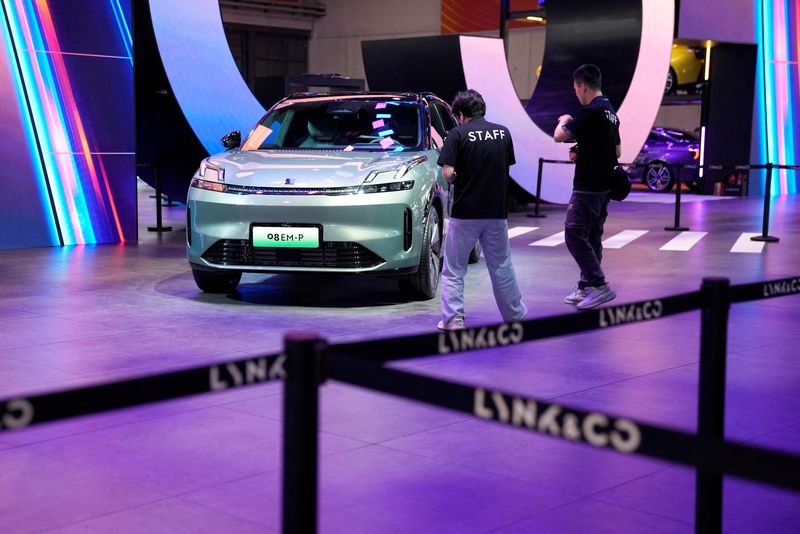By Victoria Waldersee
FRANKFURT (Reuters) - Chinese-Swedish EV brand Lynk & Co, which will launch its first China-made battery-electric car in Europe next month, said it did not intend to pass on the cost of looming tariffs on the vehicle to consumers.
"We cannot - a lot of the competitors are produced in Europe ... we need to price the car correctly in the market and work from there," the brand's CEO for Europe, Nicolas Appelgren, said in an interview at the Automechanika autos trade fair in Frankfurt.
Still, whenever the brand - co-owned by Zhejiang Geely Holding Group and Volvo (OTC:VLVLY) Cars - releases its next battery-electric car in the region, it will be made in Europe, Appelgren said, adding Geely was scouting locations for a plant.
Lynk & Co's battery-electric car, a compact SUV, would be subject to a tariff of 18.8% under current plans by the European Commission to counter what it says are unfair subsidies for EV makers producing in China.
The carmaker has not yet released a price for the vehicle, a compact SUV based on the same platform as Volvo's EX30 and Zeekr's X, which sell at around 40,000 to 45,000 euros ($49,621.50) in Germany.
"We need to find a solution but it's not a knife to the throat," Appelgren said.
His comments contrast with those by the CEO of car brands SEAT/CUPRA, Wayne Griffiths, who said a 21.3% tariff on the CUPRA Tavascan EV, also made in China, would put the financial future of the company at risk.
Without the projected Tavascan sales, CUPRA - a brand owned by Volkswagen (ETR:VOWG_p)'s Spanish subsidiary SEAT S.A. - would miss EU-mandated carbon dioxide reduction targets next year due to its combustion engine sales and face heavy fines, unlike Lynk & Co which produces only electric cars.
The Swedish brand sells and rents its first European model, a hybrid SUV, in seven European markets and is in negotiation with retailers across the region to put its cars in showrooms by the end of this year, Appelgren said.

It plans to launch another plug-in hybrid next year and expand its sales to fleet buyers, who account for the majority of EV purchases in the region.
($1 = 0.9069 euro)